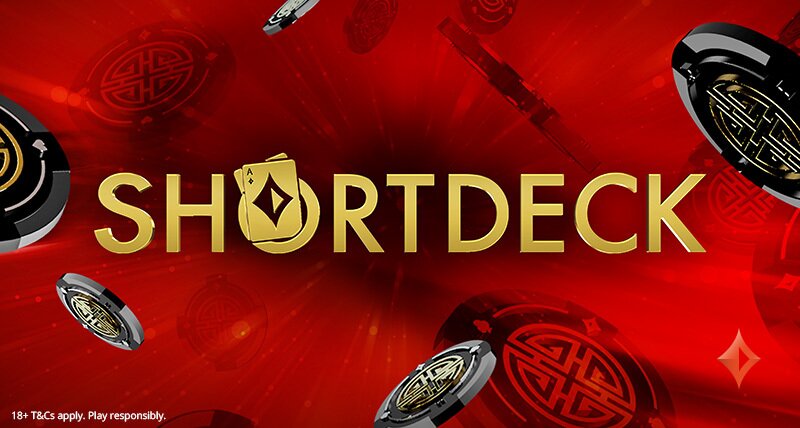Short Deck Hold’em is taking the poker world by storm. It’s the game of choice in the highest stakes cash games in Macau and is spreading around the world.
The game’s best players are huge fans of Short Deck, sometimes called 6+ Hold’em. The legendary Phil Ivey loves it, as would you had you just banked $856,050 playing this crazy game. It’s a game that generates more than its fair share of action. Pots are larger, you make bigger hands more often, it’s just great fun.
Rule Differences Between Short Deck and Hold’em
Short Deck and regular Hold’em look to be the same game on the surface, but there are some major differences. Everyone receives two hole cards in both games, except Short Deck is played with a 36-card deck. This is because all deuces through fives are removed from play, hence the alternative name six-plus.
The removal of these cards results in a change to the hand rankings. Differences in rules exist but there is an industry-standard that’s quickly becoming gospel. Flushes trump full houses and three-of-kind rank above straights. This leads to players needing to give more consideration to their postflop actions.
You’ll also notice a change to the preflop betting structures. Regular Hold’em has a small and big blind in play. Short Deck implements an ante-only format where everyone pays a preflop bounty with the button paying double. Players have the option to call the button ante, raise or fold.
The ante-only format creates much larger pots, at least when the hand is preflop. For example, in a $0.50/$1 regular Hold’em game there is $1.50 in the pot before hands are dealt. The equivalent Short Deck game has $7 in the pot before the first actions.
Larger preflop pots lead to even larger pots by the river, with hands regularly contested multi-way.
Short Deck Hold’em Observations
Regular Hold’em has 1,326 possible starting hands to choose from, but Short Deck only has 630. Disregarding different suits reduces this to 169 in regular Hold’em and only 81 in Short Deck. The lack of starting hands means you receive powerhouse hands more frequently.
Short Deck players receive pocket aces in the hole once every 105 hands, almost twice as often as regular Hold’em. This is the same for all pairs, plus Broadway hands and ace-king come around more often.
Hand equities also run closer in Short Deck than Hold’em. While the difference isn’t as vast as comparing Pot-Limit Omaha to Hold’em, it is still significant.
Aces prevail against suited jack-ten around 78 percent of the time in regular Hold’em. The same setup in Short Deck sees aces win between 63-67 percent of the time.
Pairs lower than kings lose value faster than in regular Hold’em games. Furthermore, suited hands aren’t as strong because making flushes is more difficult. Small suited connectors are dangerous hands to play if you’re used to a regular game.
Seven-six suited can be powerful in regular Hold’em but is extremely weak in Short Deck games. Why? Because it’s actually three-deuces suited due to the stripped deck. Would you be playing 3s-2s regularly? We hope not.
Bet Sizing in Six-Plus Hold’em
There’s more limping in Short Deck games than any other Hold’em variant. The closer hand equities, larger preflop pots, and implied pot odds entice players into the pot. More pots are contested by several players.
This means your preflop raises need to be larger. A raise of two-to-three big blinds gets the job done in Hold’em. Not in Short Deck. Your raises have to be larger, usually pot-sized, to have any chance of folding out opponents.
Players often shove for many times the pot, which makes sense due to the hand equities.
Three-betting is less common too, unless if it for entire stacks. Short Deck games play 100 antes deep so you’re often priced in to call when the chips start flying around. This changes once the games become deeper, but you need everyone with at least 200 antes for it to make a considerable difference.
Taking notes is vitally important in Short Deck games. There’s so much limping that you simply have to know who is limping with what hands. Take notes on the holdings that reach showdown so you know their limping habits. Some players will limp strong hands, looser players will toss in calling chips with any two cards. Knowing who’s who will save you plenty of antes and allow you to scoop even more.


